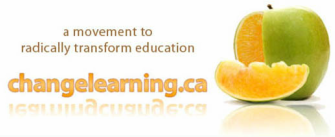Read more
|
Indigenous Australians, who comprise the world’s oldest surviving culture, have relied on oral tradition to define themselves and their place in the universe for more than 60,000 years.
Read more
0 Comments
This paper describes aspects of the current context of education policy in Canada, selected trends in the integration of information and communications technologies (ICT) for learning in the kindergarten to grade 12 education systems and offers observations about emerging visions of effective ICT integration. The ideas presented represent a synthesis of information reviewed in research reports, policy papers, selected seminars and surveys.
(Source: Canadian Education Association) Link: http://www.cea-ace.ca/res.cfm?subsection=rep The last decades of the 20th century saw countries around the world make the dramatic transition from closed, state-dominated, economies towards open, free-market, economies. This article explores the impact that the shift towards a more knowledge-based economy has had on Americans and, in particular, the implication for children’s learning.
(A paper by Terry Ryan) There’s no question that the world is a very different place than it was when public schooling became a common practice in North America. In fact, the rate of change itself has accelerated dramatically during this time frame.
Read more This paper describes aspects of the current context of education policy in Canada, selected trends in the integration of information and communications technologies (ICT) for learning in the kindergarten to grade 12 education systems and offers observations about emerging visions of effective ICT integration. The ideas presented represent a synthesis of information reviewed in research reports, policy papers, selected seminars and surveys. (Source: Canadian Education Association) Link: http://www.cea-ace.ca/res.cfm?subsection=rep Canada has a strong history of investment (both philosophical and financial) in public education. Over 40 billion dollars is spent annually on getting our children from kindergarten to grade 12, yet public opinion polls show confidence in the education system is at an all-time low, home schooling is growing exponentially and the percentage of children attending private schools has doubled in the past 25 years. Although public education certainly appears to work for a percentage of our children, an increasing number of factors point to a deeply flawed system.
Read more Despite all of society’s advances, our problems proliferate. Wars abound, environmental degradation accelerates, economies topple overnight, and pandemics such as AIDS and tuberculosis continue to spread. The Internet and other media help to disseminate knowledge, but they’ve also created an “info-glut” and left us too little time to process it. What’s more, advances in technology have made the world so bewilderingly fast-paced and complex that fewer people are able even to grasp the problems, let alone generate solutions. That space between the problems that arise and our ability to solve them is “the ingenuity gap,” and as we careen towards an increasingly harried and hectic future, the gap seems only to widen.
Read more The shift from a factory-based to a computer-based economy is more traumatic even than our great-grandparents' shift from a farm-based economy. The Industrial Revolution extended over generations and allowed time for human and institutional adjustment. The Computer Revolution is far swifter, more concentrated, and more dramatic in its impact. Arthur Schlesinger, Harvard Historian
|
Categories
All
Archives
August 2015
|

 RSS Feed
RSS Feed
